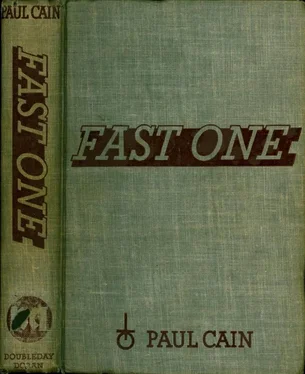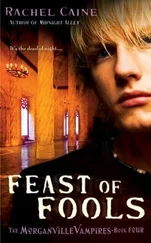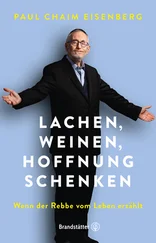Then the man got into the second car, its lights were switched on and it too drove away.
Kells said: “Give ’em enough room.”
Fifty-eight waited until the other car was more than halfway down the long block, let the clutch in slowly. Kells felt in his pockets until he found the tin box of aspirin tablets, took two. The other car turned left on Third Street. Fifty-eight stepped on it, swung into Third; there were two taillights about a block and a half ahead. He followed the faster one north on Rossmore, got close enough to see that he’d guessed right, fell back.
They turned west again on Beverly, to La Brea.
Kells was sitting sideways on the seat looking through the rear window. He leaned forward suddenly, spoke rapidly to Fifty-eight: “Keep that car in sight — an’ you’ll have to do it by yourself. I’ve got something else to watch. We’re being tailed.
They turned off La Brea, west on Santa Monica Boulevard.
Then Kells was sure they were being followed. The car was a big blue or black coupe — shiny, powerful.
On Santa Monica, a little way beyond Gardner, Fifty-eight said over his shoulder: “They’re stopping.”
“Go on past ’em — slow.”
Kells squeezed back into the corner, saw four men get out of the touring car and start across the street. He thought one of them was Detective Lieutenant Reilly; wasn’t sure. He didn’t recognize any of the others.
Fifty-eight asked: “What’ll I do?”
“Go on — slow.” Kells took the automatic from its shoulder holster, balanced it across his hand. He watched the big coupe come up slowly.
It overtook them in the second block, stayed alongside.
Kells said: “Turn off right, at the next side street.” He was deep in the dark corner of the cab, watching the coupe narrowly. Then the driver of the coupe put up his hand and Kells saw that it was Borg. They turned together into the side street, drove up about a hundred yards to comparative darkness. Borg parked a little way ahead of the cab.
Kells got out and went up to the coupe. He said. “That’s the way people have accidents,” unpleasantly.
Borg was silent.
Granquist was sitting very low in the seat beside Borg. She straightened, said: “Your other driver spilled his guts an’ the tip went out on the joint we were at...”
Borg interrupted her: “That’s a swell invention, the radio. I don’t know what we would’ve done without it.”
“Then while we were getting out,” Granquist went on, “the call went out to the car in Larson’s neighborhood to go and pick you up — we got the address from that. Fat couldn’t find a car so we hired this one at a garage—”
“An’ damn near busted our necks getting to Larson’s,” Borg finished.
Kells asked: “Where did you pick me up?”
“We were turning off Third onto Gramercy when you turned into Third.” Borg lighted his stump of cigar. He bent his head toward Granquist. “Miss Eagle-eye here thought she spotted you in the cab — an’ I thought she was nuts. She wasn’t.”
“Did you know I was following another car?”
Granquist said: “Sure.”
“That was one of Rose’s cars.” Kells put one foot on the running board, leaned on the door. “It was planted across from Larson’s to smack me down when the cops brought me out.” He hesitated a moment. “That’s what happened to Shep when they were taking him in.”
Borg swallowed, started to speak: “They...”
Granquist said: “Gerry — for God’s sake get in and let’s get out of here.” Her voice was low; she spoke very rapidly. “Please, Gerry, let’s go now — we can make the Border by three o’clock.”
“Sure. In a little while.” Kells was looking at the black and yellow sky.
It began to rain a little.
Borg said: “So what?”
“That car stopped at Ansel’s.” Kells jerked his head back toward Santa Monica Boulevard. “Ansel runs a cheap crap game that’s backed by Rose — I’ve been there. It’s a pretty safe bet that Rose is there, and his carload of rods went back there to report to him.”
Borg said: “Uh huh. So, what?”
Kells stared at Borg vacantly. “So I’m going up an’ tell Rose about Beery — about Beery’s wife.”
Granquist opened the door suddenly, got out on the sidewalk on the other side of the car. She held her arms stiff at her sides and her hands were clenched; she was trembling violently. She walked up the sidewalk about thirty feet — walked as if she were making a tremendous effort to walk slowly. Then she turned and leaned against a telephone pole and looked back at the car.
Kells watched her; he could not see her face in the darkness, only the dim outline of her body. He turned slowly to Borg.
“You can wait here,” he said. “Or maybe you’d better wait down at the first corner this side of Ansel’s. And stay with the car — both of you.”
Borg said: “All right.”
Kells walked up to Granquist. He stood looking down at her a little while, asked: “What’s the matter, baby?”
Her voice, when she finally answered, was elaborately sarcastic. “What’s the matter? What’s the matter?” Then her tone changed abruptly — she put one trembling hand on his arm. “Gerry — don’t do this,” she said. “Let it go — please this time...”
He was smiling a little. He shook his head slightly.
She took her hand from his arm and her voice was suddenly acid, metallic. “You — and your pride! Your long chances — your little tin-horn revenge!” She laughed shrilly, hysterically. “You’ve seen too many gangster pictures — that’s what’s wrong with you...”
Kells was staring at her expressionlessly. He turned abruptly, strode back toward the car.
She was behind him, sobbing, trying to hold his arm.
“Gerry!” Her words, were blurred, broken. “Gerry — can’t you think of me a little — can’t you let this one thing go — for me? For us?”
He shook her hand off, spoke briefly to Borg: “An’ stay with the car this time — I’ll be wanting it in a hurry, when I want it.”
Borg said: “Oke. First corner this side of the joint.”
Kells went back to the, cab, got in, said: “Take me down to Gardner, about a half-block the other side of the Boulevard.
Fifty-eight grunted affirmatively and swung the cab around in the narrow street.
Kells glanced back through the rear window. Granquist was standing motionlessly in the middle of the street, silhouetted against the glow of a street light on the far corner.
It began raining harder, pounded on the roof of the cab. Fifty-eight started the windshield wiper and it swished rhythmically in a wide arc across the glass.
They stopped in the shelter of a big palm on Gardner and Kells got out.
Fifty-eight asked: “Can I help, Mister Kells?”
Kells shook his head. “I’ll make out.” He peeled two bills off the roll in his pocket, handed them to the little Irishman. He turned swiftly and went into the darkness between two houses, heard Fifty-eight’s “Thank you, sir,” behind him.
The driveway ended in a small garage; there was a gate at one side leading to a kind of narrow alley. Kells crossed the alley and walked north along a five-foot board fence for about a hundred feet. Then he climbed over the fence and went across a vacant weed-grown lot toward the rear end of the building that housed Ansel’s.
Its three stories were dark and forbidding in the rain; no light came from the rear, and the side that Kells could see seemed entirely windowless. It was raining hard by now — he rolled his coat collar up, pulled the brim of his soft hat down.
He slipped once in the mud, almost fell. In righting himself he remembered his wounded leg suddenly, sharply. It was throbbing steadily, swollen and hot with pain.
Читать дальше












